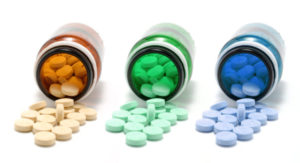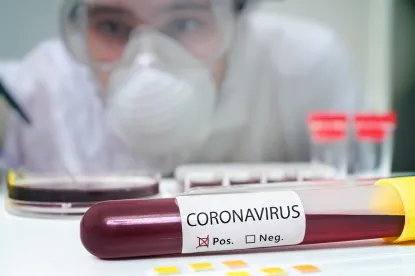As potential COVID-19 treatments enter human trials, the question of pricing, access, and intellectual property has naturally entered the discussion. With numerous private entities working on a cure, the industry, governments, payers, healthcare groups, and other stakeholders are quickly pushing their respective (and, in most cases, expected) positions relating to the balance between IP rights and access.
Just this week the World Health Organization announced support for an IP pool proposal relating broadly to COVID-19. Offered by Costa Rica, the proposal would create “a repository of information on diagnostic tests, devices, medication or vaccines, with free access or licensing on reasonable and affordable terms, in all member countries of the Organization.”
Similar activity has been seen on a country-by-country basis. Both Chile and Ecuador are considering initiatives to allow for compulsory licensing. Israel recently approved a generic version of AbbVie’s Kaletra®, despite AbbVie’s patents, for the treatment of COVID-19. And Canada recently passed a bill to accelerate the process of issuing compulsory licenses. Part 12 of Canada’s new law allows the government to issue a compulsory license “to respond to the public health emergency” and then compensate the patentee later based on the “economic value of the authorization and the extent to which they make, construct, use and sell the patented invention.”
Closer to home, Sen. Sasse (R-Neb.) last week introduced the “Facilitating Innovation to Fight Coronavirus Act.” The bill proposes that the term of certain patents “shall not begin until the date on which the [coronavirus] national emergency . . . terminates.[1]” That delay in term would apply to any “patent issued for a new or existing pharmaceutical, medical device, or other process, machine, manufacture, or composition of matter, or any new and useful improvement thereof used or intended for use in the treatment of the Coronavirus Disease 2019 (COVID-19).[2]” In compensation for that delay, the bill proposes a patent term extension: “the term of the patent shall extend for 10 years longer than it otherwise would under such title.[3]”
 The U.S pharmaceutical industry is reacting. According to the Medicines Patent Pool, a UN-backed non-governmental organization, AbbVie, has agreed not to enforce patents relating to Kaletra anywhere in the world for all formulations. AbbVie reportedly commented that it commits to taking “all steps necessary to remove any potential barriers, including dedicating to the public our intellectual property related to” Kaletra. (Although perhaps not too bitter of a pill for AbbVie, as a recent study indicated “no benefit was observed” by treating COVID-19 patients with Kaletra.)
The U.S pharmaceutical industry is reacting. According to the Medicines Patent Pool, a UN-backed non-governmental organization, AbbVie, has agreed not to enforce patents relating to Kaletra anywhere in the world for all formulations. AbbVie reportedly commented that it commits to taking “all steps necessary to remove any potential barriers, including dedicating to the public our intellectual property related to” Kaletra. (Although perhaps not too bitter of a pill for AbbVie, as a recent study indicated “no benefit was observed” by treating COVID-19 patients with Kaletra.)
Gilead, having faced questions about the exclusivity surrounding and price of its lead candidate, remdesivir, has reacted as well. For example, Gilead announced that it petitioned FDA to rescind remdesivir’s Orphan Drug designation, thus carving off seven years of exclusivity. And just last week, Gilead’s CEO Dan O’Day penned an open letter in which he reaffirmed Gilead’s commitment to bring the drug to market quickly, confirming that “Gilead is providing the entirety of this existing supply at no cost, to treat patients with the most severe symptoms of COVID-19” and noting that doing so “is the right thing to do, to facilitate access to patients as quickly as possible and in recognition of the public emergency posed by this pandemic.”
But the US need not wait for individual companies to react, having at its disposal already two statutes[4] that it could wield to ensure access: the Bayh-Dole Act of 1980[5] and 28 U.S.C. § 1498.
Under Bayh-Dole, a federal contractor[6] electing to retain the rights to IP funded by the government must provide the federal agency with a government-use license, and the United States retains the authority to grant compulsory licenses to third parties in certain circumstances (“march-in rights”). Under those march-in rights, where “action is necessary to alleviate health or safety needs,” the government may force the funded company to license its rights to a third party to bring the patented invention to market “upon terms that are reasonable under the circumstances.[7]”
Regardless of funding, 28 U.S.C. § 1498 provides a second avenue, broadly allowing for compulsory licenses. As noted by the Supreme Court in Oil States, patents are public franchises[8], supporting the eminent-domain-like power § 1498. Specifically, under that section, where a patented invention is made or used by or for the government without a license, the patentee’s remedy is limited to “reasonable and entire compensation for such use and manufacture,” including costs such as “reasonable fees for expert witnesses and attorney.” Although costs and fees would ordinarily be recoverable, however, that is not so where the “court finds that the position of the United States was substantially justified or that special circumstances make an award unjust.”
As COVID-19 progresses, we’ll certainly see further developments across the legal landscape. With respect to intellectual property, we’ll continue monitoring how the virus shapes policy here and abroad.
[1] Section 3(a).
[2] Section 3(c).
[3] Section 3(b).
[4] International treaties also allow for compulsory licenses. See Convention of Paris for the Protection of Industrial Property, 13 I.S.T. 25 (1962), Art. 5(A)(2) (“Paris Convention”); Agreement on Trade-Related Aspects of Intellectual Property Rights, April 15, 1994, Art. 31. (“TRIPS Agreement”).
[5] 35 U.S.C. §§ 200-212.
[6] Although Bayh-Dole, by its terms, only applies to federal contractors that are nonprofit organizations or small businesses, Executive Orders 1259 and 12618 (codified by 37 C.F.R § 401.1(b)) has applied Bayh-Dole to all federal contractors, regardless of size.
[7] 35 U.S.C. § 203(a).
[8] Oil States Energy Servs., LLC v. Greene’s Energy Group, LLC, 138 S. Ct. 136 (2018).




 />i
/>i

